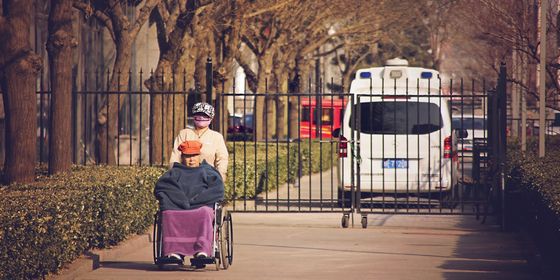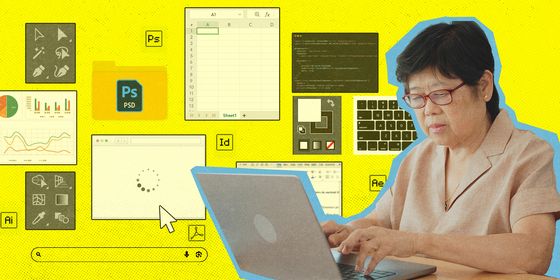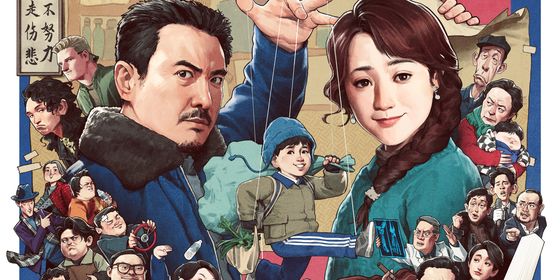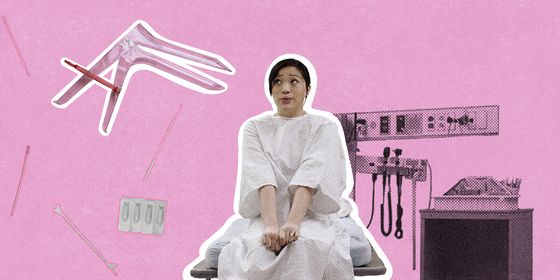What is it like to face the end of one’s life—and see one’s loved ones grow old—in a country with an imperfect medical system?
The first character in the Chinese word for “companion,” banlü (伴侣), literally means “person-halves.” When my grandfather is first diagnosed with cancer, my grandmother teaches me about banlü and what it means—and also how it is to love someone who’s old and sick in a country with a struggling hospital system.
“I’ve dropped everything,” says my nainai (grandmother). “Going out to meet friends, trying to learn English — I haven’t done any of that in months. I’m saving all my energy to bring your yeye (grandfather) back to health.”
I. Before chemotherapy
The morning begins with oxygen, pills, and water. My nainai, who has struggled with her iPad for years, has somehow learned how to operate a respiratory machine.
“At this point, it’s not out of passion or anything,” nainai explains. “It’s plain and simple gratitude. Your yeye and I have sacrificed for each other all our lives. We’ve got each others’ backs until the end.”
Ever since their children left their two-bedroom apartment decades ago, my grandparents have slept in separate rooms — until recently. Now nainai has moved back onto a cot in yeye’s room, so that she can walk him to the bathroom at night. A light sleeper, she gets up every time he does, often several times before dawn.
One night, yeye tells nainai to take a break and get a good night’s sleep in her own room. It is the next morning that yeye falls en route to the bathroom, the doorframe taking a large gash out of his forehead. “There was so much blood,” nainai says. “Thank goodness he’s OK. But you think I’m going to let him sleep alone ever again after that?”
The nightstand next to my yeye’s bed is cluttered with reading glasses scissors, and an array of pills.
“In China, if you can’t pay, you die. Good thing your yeye and I have savings and pensions. If you made 2,000 RMB a month”—318 USD, as many migrants in Beijing do—“how can you buy these pills your grandpa needs for his treatment? That’s 4,000 RMB completely out of pocket.”
She answers her own question.
“You simply wait for death. There are all these newspaper ads by people asking for public donations to get medical treatment nowadays. People are often kindhearted enough to give money. But what’s our supposedly socialist Chinese government doing with all its vast riches?”
My nainai keeps elaborate tables, detailing yeye’s blood-pressure levels in the morning, before lunch, after lunch, and after dinner. She sits down every night to update the cells before sending photos of them in our family’s WeChat group message, to which my father customarily responds, “Very good!” or “Not bad.”
When my yeye was in hospital last month for chemotherapy, he mentioned that he wanted something to recline on. My dad bought a new plush Western-style sofa set, to surprise yeye when he came home.
“I am so proud of your father in all this,” my nainai tells me, beaming. “Did you know that the first chemotherapy treatment is usually the worst? Your baba knew this, and knew that I scare easily. He flew back to Beijing to take yeye to the hospital and told me to go home. He didn’t let me see your yeye go through that. All I saw was that afterward, yeye was skinnier and his hair was thinner.
“Even though he’s not here, he calls every day asking about your yeye’s health.” Her face is solemn with pride as she concludes: “We raised your baba well.”
My yeye’s principal passion is Go or 围棋, an ancient Chinese strategy game played with white and black stones on a wooden board. He’s played every afternoon as long as I’ve known him. After his Go buddies moved out of the neighborhood one by one, my dad bought him an iPad so he could play online against others of his caliber.
However, my yeye’s shaky hands often lead him to accidentally tap the wrong spot to place his piece, thus ruining his strategy. So, sometimes nainai sits by his side while he plays and helps him tap the screen — even though she understands none of the game itself.
But yeye never shows anger. Instead, when his trembling finger hit the wrong spot, it is nainai who gets mad and cries, “No! Don’t lose because of your finger; that’s stupid! Here, I’ll be your finger. Just tell me where to go.”
II. The third chemotherapy
Even in the capital, you have to wait days for a hospital bed to open up. You find people sleeping outside of hospitals, having traveled far and not daring leave, in case they need emergency care.
My nainai knows that it is in this seven-day period that my grandpa is supposed to get his third chemo treatment out of six, so for three days, she jumps every time the phone rings. Finally on the evening of the third day, a nurse calls and tells us to come next morning for a bed.
Still, we wait from 10 a.m. to 4 p.m. for that coveted space. At this ward, an inpatient room has been repurposed as a waiting area. Since the eight patients already barely fit on their assortment of chairs and beds, family must wait outside in the stairwell, which looks like it hasn’t been swept in ages. We all eventually give up and sit down despite the grime.
At lunch time, nainai and I walk yeye back down to the first floor, where we have discovered a row of six chairs in a sparse hallway. My nainai retrieves hot water and builds the broth for my yeye’s noodles. As a diabetic with bad teeth, he can chew and digest only certain things without trouble; he eats in pensive silence.
For inpatients, you must hire a caretaker for the night, because nursing rounds are infrequent and who knows what may happen in between. In the afternoon, my nainai calls for a caretaker so she can go home for the night. She is told there are none left.
The going rate for a caretaker is 160 RMB, or around 25 USD for 24 hours, and the hospital agency takes 25 percent of the cut. From the caretaker’s perspective, you are paid less than 1 USD per hour to work 24 hours straight, with an hour off for each meal. If the host pays you an extra 15 RMB (2.38 USD) per meal, you can’t leave during meals either.
When there are no more caretakers and the patient is in critical condition, a family member must stay. I volunteer, but my nainai dismisses me. She puts it plainly: “What if your yeye has to take a number two at night? I’m his wife, I’m going to wipe him.”
So nainai rushes back to rent a 10 kuai cot just as the distributor is packing up for the day. Still, nainai doesn’t actually sleep—she is a trooper at pulling all-nighters at 77 years old.
In the morning, I return to the hospital with milk and fresh mantou buns.
Every day that my yeye has been in the hospital, he has eaten home-cooked food by nainai—or in the case of this day, dumplings and soup from me. Even for a 24-hour stay, he arrives accompanied by a duffel bag of bowls and utensils carefully wrapped in newspaper.
Says nainai (in rough translation): “We’re not letting you eat that hospital crap.”
Next afternoon, yeye is cleared to go home. Day after day, he builds his strength, as summer comes at us full-force.
III. Post-chemotherapy
Outside her apartment complex, nainai runs into longtime-friend and neighbor Auntie Pang. She asks about my yeye’s condition, and nainai happily tells her that he has completed his third treatment. Halfway to health!
Throughout his 70s, yeye played one to two hours’ ping pong, every day. Last year, he beat my 23-year-old brother at push-ups (39 – 25). I was also pretty embarrassed to lose an arm wrestle to a white-haired octogenarian.
But the chemo is taking its toll. Now, yeye tires easily, and his long morning walks to the market are abandoned for laps in the apartment. Every day after dinner, I hear the shuffling of slippers on hardwood as he makes his way to this wall, and back to that one, then back to the chair.
Yet every once in a while, yeye will blurt, “Let’s go out.” This afternoon, we run into a neighbor from the same danwei as my grandparents, and I caught a picture of them holding hands and beaming like toddlers. They have known each other since the 1960s.
While selfie-culture has taught me to conjure a smile in a split second, yeye has never developed the habit of smiling for pictures. In family portraits, he wears a half-amused, half-pained expression. In other words, he doesn’t know how to fake it. Which is why, when that smile cracks from his lips, it’s truly golden.
IV. Epilogue
March, 2017: My mother sits on my bed, smoothes my blankets, and begins telling me about yeye’s last days.
“When your baba and I got to the hospital room, your nainai prodded him, ‘Look who’s here?’ I said to him, ‘Hold on, Dad! Tina and Lucas are coming to see you in two weeks!” My mother tells me yeye’s eyes flashed with recognition. I wonder if she just tells me this to make me feel better.
“He had been coming in and out of consciousness all day,” she continues. “His heartbeat was twice as fast as it should be. When your yeye fell asleep, your dad, nainai, and I all left together. We had just gotten home when the hospital called us back.
“His body was still warm.” She wondered whether he could still be alive, but my father pointed to the cardiogram, and the IV that had ceased to drip, as there was no more circulation to pull it into the body.
The lymph nodes bulged on my grandfather’s neck, the lymphoma having eaten away the last of his life.
I remember the day—for them it was Sunday morning at 1:55 a.m., for me a Saturday afternoon at 1:55 p.m.—when my mother texted our family group. “Your yeye just left us. Just put on his last set of clean clothes.”
I FaceTimed my mother in time to catch them covering his body with a golden cloth, before lifting his stretcher into a metal locker. His expression was peaceful, though his mouth, nostril, and ears were filled with white foam. I held the last glimpse of yeye in my palm, precious pixels on a tiny screen.
I watched as nainai folded her hands over her stomach and betrayed no sorrow. She has always been a strong woman.
My mother says, “We were all prepared. We knew that he was leaving soon.
“Originally, your dad wanted the doctors to do radiology treatment to kill the lymph nodes. The doctor said, ‘Yes, yes, we can do that’ and transferred your yeye to another hospital in the outskirts. When we got to there, the doctor shook his head and said that this is where they send patients who have no more possible treatments.”
“Your nainai didn’t want to commute one-and-a-half hours each way every day, so we managed to move him into this linzhong (‘facing the end’) house in the city center. That way, at least we could be with him.”
Later that night in my dorm room in Boston, we call my grandmother. She is preparing my brother’s favorite red-braised pork dish, as his flight will be landing that afternoon.
Nainai talks quickly, the same deluge of words she has always spoken, but every once in a while her throat chokes off the flood.
“Your yeye liked to watch this show, Chong Chong Chong, every night at 11,” my nainai says. “I thought it was stupid. But every night, I turn on the TV and watch it.
“It’s not that I’m lonely, or that I’m weak,” my grandmother says, “but every time I think of his good qualities, I—I—”
She sniffs into the phone.
“In his last weeks, your grandfather’s memory was going, and he couldn’t get words out,” nainai continues. “He could respond to basic things, like ‘Do you want maize porridge or millet porridge?’ You know your yeye, he doesn’t like to talk. There were things we never talked about. At the end of his life, there were things he wanted to say. But they were all garbled.”
I have always wondered what yeye could have wanted to say in those last days. One of the nurses said that he kept repeating, “Amitofo, Amitofo,” a popular Buddhist incantation. What I do know is that, even without the words, he and nainai’s great love for each other had already imparted the most important lessons.
When I show nainai the pictures from summer of 2015—the ones in this piece—she sighs, “Ai-ya…look at how good we were to each other.” She grips my arm tightly. “Print some of these for me.”
For nainai, loving my yeye has become a habit that cannot be so easily stemmed by death.
When I arrive in Beijing two weeks later to bury yeye’s ashes with my family, I find nainai absorbed in her iPad.
“What’s that?” my brother asks, peering over her shoulder where my grandma is lifting and dropping colorful blocks in a game. She looks up.
“I’m building a house for your yeye in the sky.”
Selfie of the author with her grandparents
Love in an Old Climate is a story from our issue, “Vital Signs.” To read the entire issue, become a subscriber and receive the full magazine.












